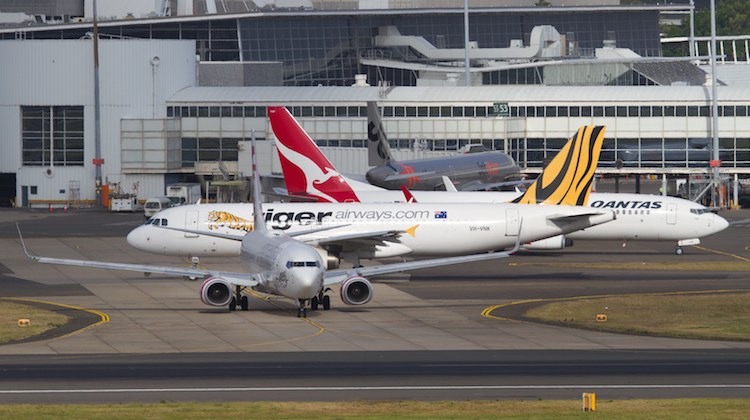
There was an across-the-board rise in Australian domestic airfares to multi-year highs in September, new figures show.
A monthly report from the Bureau of Infrastructure, Transport and Regional Economics (BITRE) showed ticket prices for business class travel were at levels not reached for almost five years.
The index measuring business class airfares was at 95.7 points in September, up from 90 points a year earlier and at its highest level since reaching 107 points in November 2011. It has risen for the past 13 months on a year-on-year basis.
The figures were a further indication the corporate and government travel sector was getting back on the road after being on pause during the election campaign.
Similarly, the best discount economy index jumped to 74.1 points, the highest figure since it reached 81.9 points in December 2013, and up seven points from 67.1 points in September 2015.
And the BITRE measure of air fares for restricted economy was at an eight-month high of 80.8 points, up from 80.2 points in July 2015. The index touched 80.9 points in January 2016.
The BITRE air fare series was a price index of the lowest available fare in each fare class, weighted over selected routes.
Both Australia’s major carriers Virgin and Qantas have cut domestic capacity in recent times in an effort to improve yields and better match the number of seats in the market with demand.
And looking ahead, Qantas has guided the market to a one per cent reduction in domestic capacity across its Qantas and Jetstar brands in the six months to December 31 2016, compared with the prior corresponding period, as it adjusts schedules to reflect the weakness in mining-related markets.
“We are focused on preserving high operating margins through the delivery of the Qantas transformation program, careful capacity management, and the benefit of low fuel prices locked in through our hedging,” Qantas chief executive Joyce told reporters during the airline group’s full year results presentation on August 24.
“Unit revenue is expected to be below the first half of financial year 2016, with competitive industry pricing and resources sector weakness.”
While Virgin did not offer capacity guidance for the period ahead, the airline’s chief executive John Borghetti noted the resources downturn and uncertainty around the economy had led to general weakness in consumer demand for air travel.
“The environment continues to be challenging and we are not seeing any changes to what we have experienced in the last six months or so,” Borghetti told reporters at the airline group’s full year results presentation on August 5.
Asked if the soft demand for air travel would result in lower fares, Borghetti noted there had already been some price stimulation efforts in the market, highlighted by recent $900 return fares to New York.
“That’s pretty damn low so the fares are low now,” Borghetti said.
“But you know there comes a point where lowering fares doesn’t actually necessarily generate more traffic. If people are not wanting to spend, they don’t spend.
“Of course the moment fares do go down yield does get impacted.”
Virgin Australia has rolled out a new fare structure that features reduced benefits for some of its elite frequent flyers and the re-introduction of seat-only options for flights to Bali and the South Pacific.
The airline has rebranded its Saver, Flexi, Premium Economy and Business fares with names such as Go, Go Plus, Getaway, Elevate, and Freedom, each of which have different levels of flexibility and inclusions. There are also new fare categories for premium economy and business class tickets.
The new pricing structure that came into effect on September 7 suggested Virgin was hoping to entice those who had previously purchased the cheapest Saver fares to pay a bit more for the Elevate fare in order to receive more benefits, given Getaway domestic fares do not earn silver, gold and platinum Velocity frequent flyer members bonus points, while gold and platinum members would not be able to “Fly Ahead” (catch an earlier flight) if they arrive at the airport early.










